
In Memoriam
Prof. Charlotte Froese Fischer (1929 - 2024)
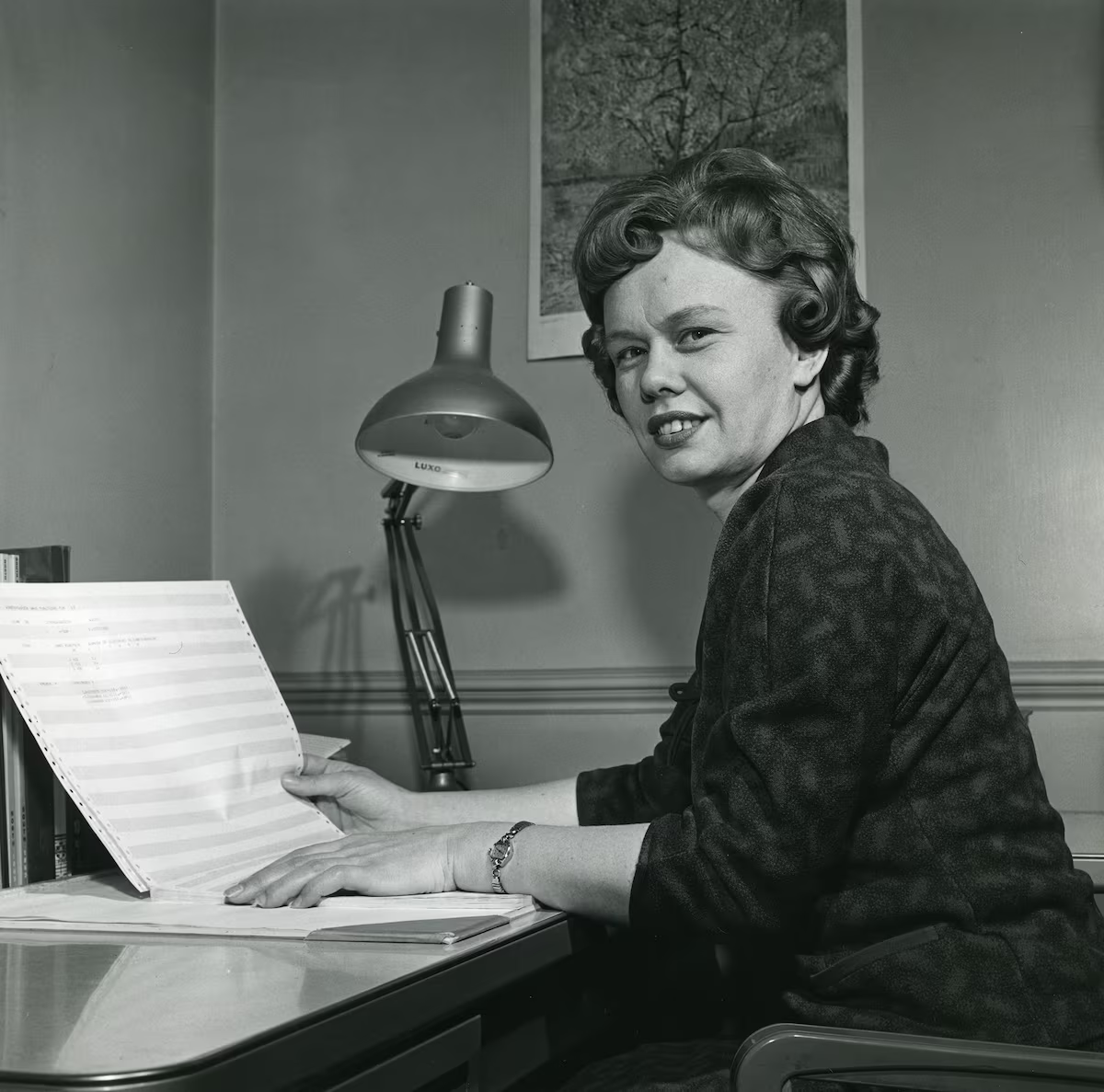
Dr. Fischer earned her Bachelor’s degree with honours in Mathematics and Chemistry in 1952 and her Master’s in Applied Chemistry in 1954 from UBC, before moving to Cambridge for her PhD.
She then returned to UBC in 1957 as a Professor of Mathematics, where she introduced computer courses into the curriculum and was instrumental in the formation of the Computer Science Department as an Affiliate Professor.
In 1963, she was the first woman to be awarded an Alfred P. Sloan Foundation Research Fellowship. In 2016 Dr. Fischer was elected to the Royal Society of Canada, the nation’s highest academic honour in the sciences, humanities and arts. Dr. Fischer’s work had an impact on many different scientific fields, beyond computer science, including spectroscopy, plasma physics, microelectronics and astrophysics, as well as biomedical and environmental sciences.
Charlotte Froese Fischer passed away in February, 2024 at the age of 94.
Prof. Bill Aiello ( 1959 - 2019)
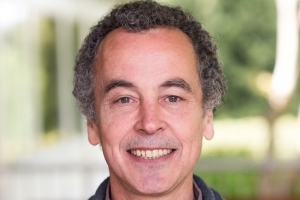
Bill and his family came to Vancouver from New Jersey in December 2004. Arriving from his position as research scientist at AT&T Labs, Bill became head of the Department of Computer Science, a position he held for five years. Since 2014, Bill has been the Academic Director of the UBC Academic Leadership Development Program (ALDP), a role he relished as it allowed him to help incoming academic leaders at UBC develop confidence and expertise in their new roles.
Loved and respected for his advice, kindness, ideas, wisdom and humour, all of which were given freely to students, colleagues, and academic leaders alike, Bill made a difference. He was happiest when he was encouraging others and finding new ways to make things better. UBC is a better place thanks to him.
We have been so fortunate to have worked and studied with Bill, to have learned from him, and to have experienced his kindness. He will be deeply missed by his wife and his children, who are in first year at UBC this year – and by all of us.
Bill strongly believed in the power of community and in the good that can arise when people work together for a common purpose. In lieu of flowers, contributions in his name can be made to any charitable organization of the giver’s choice.
Prof. Richard Rosenberg ( 1939 - 2019)
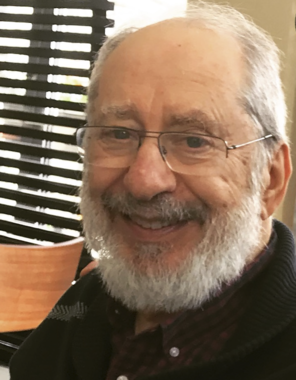
Richard was with our department from its very start, in 1968, after completing his Ph.D. at Michigan on Evolutionary Computing. He played a pivotal role in developing the department and the Artificial Intelligence group. His later work focused on the implications of the Internet for important civil liberties areas such as privacy and anonymity, free speech, access, and ethics. He developed national and international privacy and ethics policies, particularly for electronic media, in Canada, the United States, and Europe, as well as national and international approaches to the regulation of free speech on the Internet.
His work was and continues to be critical to promoting and protecting privacy rights, and he developed methodologies for teaching ethics and professional standards to computer science students, and approaches to dealing with ethical dilemmas as they arise in the workplace, educational institutions, and at home. He was honoured with the BC Civil Liberties Association Lifetime Achievement Award and the IBM Pioneers of Canadian Computing Award.
Richard was Acting Head of the our department between July – Dec 2004.
Richard became professor emeritus in our department a few years ago. Many of us had the pleasure of seeing him in May of last year, when he attended our CS 50 festivities and was honoured with receiving our Computer Science Founder’s Award.
Richard was a kind and wonderful person, who was loved by his family, friends, and colleagues. May his memory be a blessing.
Prof. Paul Gilmore (1925 - 2015)
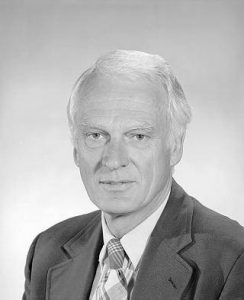
Prof. John Peck (1918 - 2013)
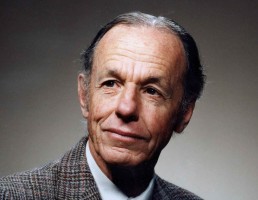
Professor Emeritus Peck, the first permanent Department Head of UBC Computer Science Department, passed away on November 6, 2013. Professor Peck was a pioneer in the field of Computer Science, arriving at UBC to serve as head of the newly-formed Department of Computer Science from 1969 to 1977. He retired in 1984.
One of Professor Peck's major achievements was his participation in the design of the computer language Algol 68, which influenced many of the programming languages that are now commonly used. He was a key member of the international community that pioneered the field of Computer Science beginning in the early 1960s.
John was also a pioneer in academic Computer Science. He recruited several of the department's early faculty members and was responsible for the acquisition of the department's first computer, an HP 21MX (with programmable microcode). This was at a time when the idea of Computer Science as a distinct discipline needing its own computational resources was quite revolutionary.
John was an avid outdoorsman who enjoyed alpine climbing, skiing and cycle touring. He was a lifetime member of Nature Vancouver (Vancouver Natural History Society).
Prof. Jim Kennedy (1928 - 2004)
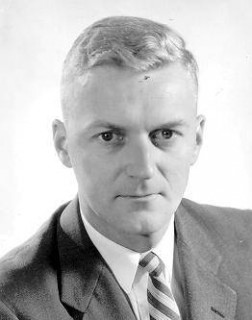
After more than a decade working with Atomic Energy of Canada, Dr. Kennedy joined UBC in January 1966 as the Director of the Computing Centre, a position he held until June 1980. In addition, he became a professor in the Department of Computer Science in 1968. Dr. Kennedy served on the University of British Columbia Senate from 1969 to 1975 as a Representative of Joint Faculties.From 1980 to 1984, Dr. Kennedy served in the President's Office as Vice-President of University Services.
As well as a valuable member of the UBC community, Dr. Kennedy was a founding member of the Canadian Information Processing Society, He served as an officer of the Canadian Mathematical Association, the Canadian Association of Physicists and the Canadian Applied Mathematics Association; and as a board member of Vancouver Community College and the Management Advisory Council of BC Colleges and Provincial Institutes.
Prof. Hugh Dempster (1928 - 2002)
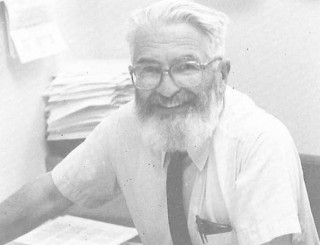 J. R. Hugh Dempster was born in Mayo, Yukon, in 1928. The family moved to the lower mainland in 1934 when his father retired. Hugh graduated from UBC in 1949 winning the Governor General's Gold Medal for highest standing the the graduating class in Arts and Science. Hugh went on to earn a Ph.D in Physics from Princeton in 1964.
J. R. Hugh Dempster was born in Mayo, Yukon, in 1928. The family moved to the lower mainland in 1934 when his father retired. Hugh graduated from UBC in 1949 winning the Governor General's Gold Medal for highest standing the the graduating class in Arts and Science. Hugh went on to earn a Ph.D in Physics from Princeton in 1964.
Hugh was one of the founding members of the department of Computer Science in 1968. Prior to this, Hugh had worked at UBC in the Computing Centre. Hugh is remembered by his students as an outstanding teacher whose influence on their lives extended beyond the classroom. Hugh retired from UBC in 1993. Following retirement, Hugh remained very active in peace, Anglican church and social justice issues, until he passed away in September 2002. Hugh was actively involved in many groups and events such as the Vancouver Peace Walk, Project Ploughshares and End the Arms Race.
Hugh's father, William John (Jack) Duncan Dempster, was an officer with the North West Mounted Police who was stationed throughout the Klondike during his career. The route he often traveled would later be named the Dempster Highway in honour of his service. Like his father, Hugh left an indelible mark on the people who came to know him. At UBC, the Hugh Dempster Pavilion is named in his honour.
Prof. Alain Fournier (1943 - 2000)
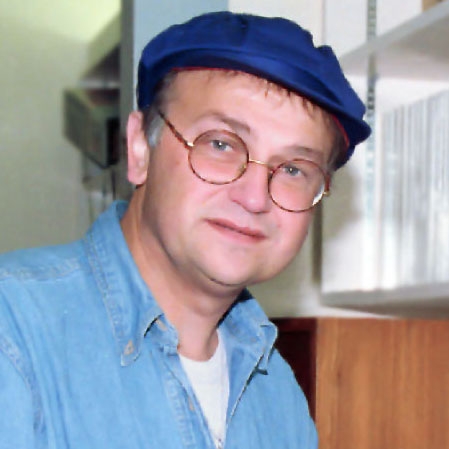
Fournier's career in computer graphics spanned only about 20 years, after earlier training and work as a chemistry teacher. In this short time, his research made a remarkable and indelible impact on the field. In 1980 Fournier received a Ph.D. in computer science from the University of Texas at Dallas. The results of his Ph.D. work on stochastic modelling were published in a seminal paper in 1980. He then went on to an outstanding academic career, first at the University of Toronto and subsequently at the University of British Columbia, which he joined in 1989. That same year, he founded the Imager lab at UBC, an interdisciplinary research group that has since grown to encompass ten faculty members and focusses on computer graphics, computer animation, visualization, haptics, and human computer interaction. He contributed to ACM Transactions on Graphics as an author, as co-guest editor of a special issue in 1987, and from 1990 to 1992, as an associate editor.
Many of Fournier's contributions to computer graphics are centred on the modelling of natural phenomena. Importantly, he advocated a methodology that required validation against real visual phenomena, which he referred to as "impressionistic graphics". This has had a deep and lasting impact on computer graphics and is typified by his beautiful paper (with Bill Reeves) on the depiction of ocean waves. His subsequent work made significant advances in a number of areas, including illumination models, light transport, rendering, and sampling and filtering.
Fournier died of lymphoma in the early hours of August 14, 2000 in Vancouver.
The ACM SIGGRAPH 2001 Proceedings were dedicated to Fournier. The Alain Fournier Award for the best Canadian doctoral dissertation in computer graphics is awarded annually at the Graphics Interface conference.
Fredrick (Rick) Sample (1958 - 1989)
Rick Sample was a UBC alumnus, a valued member of the UBC Department of Computer Science, and a researcher on the early protocols that developed into today’s email systems. During Rick’s short life, he was able to contribute a great deal to UBC Computer Science. Today, his legacy lives on through an endowment established by colleagues, friends and family: the Rick Sample Memorial Research Scholarship.
Rick’s mother Dorothy and his father John both attended UBC. Rick followed in their footsteps, completing a double major in physics and computer science in 1980. He continued on to a Masters of Science in computer science, graduating in 1984. During his graduate studies, Rick started working on research lead by Gerald Neufeld and Paul Gilmore on distributed electronic mail delivery.
The research team worked to develop an electronic mail system based on the then-new X.400 standards. Rick worked primarily on the user agent, a proto-version of an email client, used to send, receive, and organize messages. Other members of the team, Brent Hilpert and John Demco, developed ways to transport messages between computers. They also focused on sharing the software within Canada (via a network they started called CDNnet), and internationally.
Rick also assisted with the commercialization of the software through their company, the Sydney Development Corporation. The software was used internationally for academic and research purposes. This research was an important step on the path to today’s email.
As well as conducting research, Rick served as the computer facility manager in the Department of Computer Science for five years. He supported all computer science faculty members in their various research projects, including helping to determine computing and networking requirements, acquiring hardware and software, and performing installation and maintenance. As one faculty member reflects, “He got along well with department members. He was responsive: whenever I asked him for some help, he would try to address my needs then and there rather than putting me off.”
Groups of researchers would join together to form local laboratories, and each lab would have its own particular computing and networking needs. Rick helped develop a number of undergraduate teaching labs outfitted with Macintoshes and several other types of workstations. As well, he helped set up the computing systems for the department’s administration.
It is clear Rick Sample played an instrumental and lasting role in computer science at UBC, and today it is wonderful to be able to recognize his contributions through the Rick Sample Memorial Research Scholarship Endowment. It is awarded each year to outstanding undergraduate students for summer internships in the department.
As one department member reminisced, “He was a hands-on person whose office space resembled more of a workshop than an office.” It is only fitting to honour Rick by giving the next generation of computer scientists a chance to conduct hands-on research. There is no telling what new innovations they will discover.